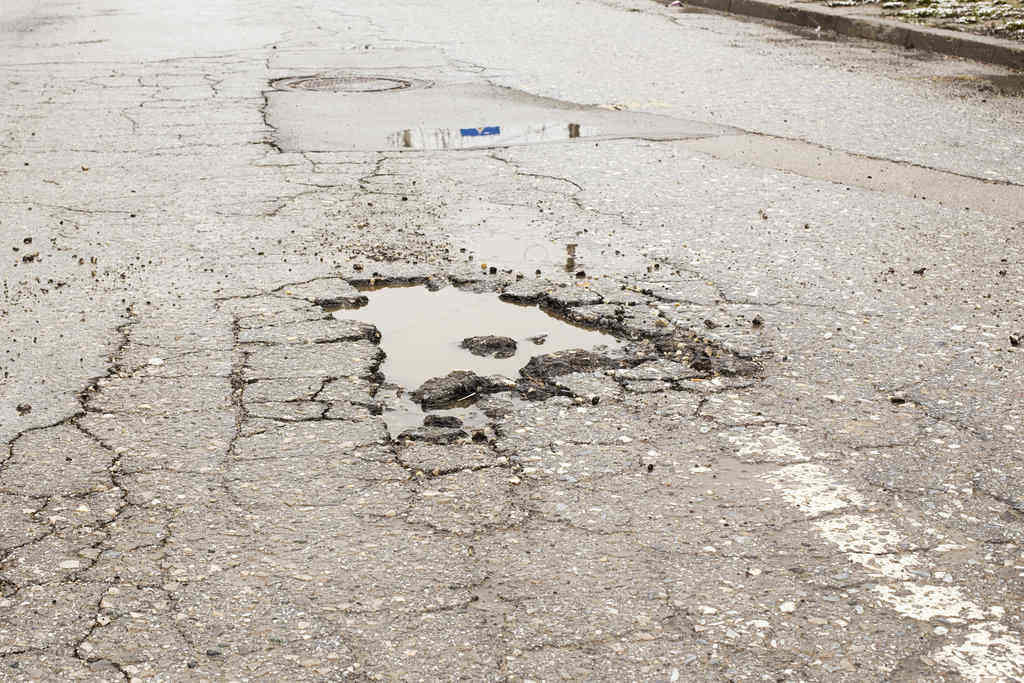
A state-by-state survey of road conditions says South Carolina roads are bumpy, pocked by potholes and among the most dangerous in the nation.
According to ConsumerAffairs, “South Carolina has the worst roads in the U.S., followed by Louisiana, Hawaii, Rhode Island and Delaware. Residents of these states said the roads have potholes, illegible street signs and regular heavy congestion.”
In addition to a variety of federal statistics, the ConsumerAffairs roads survey considered such factors as:
- Motor vehicle accident fatalities on roads per mile
- Percentage of roads in poor, fair and good condition
- Amount the state spends per mile of road
The survey found that 18% of South Carolina roads are in “poor” condition and 35% are “good” roads.
“A respondent in Fort Mill said the streets are ‘not adequate to handle the volume of traffic,’” ConsumerAffairs said. “One respondent called Lancaster ‘pothole city,’ and another in Little River reported cracks and missing pavement.
In a report about the survey, WCNC TV in Charlotte, N.C., says the South Carolina Department of Transportation “noted that the survey released by Consumer Affairs references all public roads in the state. SCDOT owns and maintains about two-thirds of public highways in the state.”
The Insurance Institute for Highway Safety (IIHS), the source ConsumerAffairs used, says there were 924 fatal motor vehicle accidents in South Carolina in 2017 and 988 deaths. IIHS says South Carolina had the highest fatality based on miles travelled in the nation that year.
South Carolina Working to Improve Roads Reputation
ConsumerAffairs notes in the report that South Carolina had increased taxes on gasoline by 4%, which has generated more than $149 million to pay for state road improvements, including resurfacing projects.
This year is the third year of six annual 2-cent gas tax increases. The increase will generate an additional $70 million a year for the state’s roads, The State in Columbia said in June as this year’s increase was about to go into effect.
Officials with SCDOT told WIS TV 10 that over $1 billion in road improvements are in the works.
South Carolina Transportation Secretary Christy Hall told The State in June that the state had $11 billion worth of pavement needs as a result of 30 years’ worth of backlogged maintenance. Since 1987, South Carolina has had one of the lowest fuel taxes in the U.S.
With the fuel tax hike in 2017, SCDOT began a 10-year plan to improve the state’s highways, with an emphasis on repaving roads. The plan includes doubling the percentage of good roads by:
- Rebuilding and repaving roads
- Preserving and maintaining good roads
- Improving 1,000 miles of the “worst-of-the-worst” rural roads where the highest numbers of fatalities occur
- Replacing a significant number of deficient bridges
- Improving the state’s interstate system.
The South Carolina 2017 Traffic Collision Fact Book says the roadway conditions were the primary contributing factor in one fatal accident in 2017 and three in 2016. Roadway conditions were the primary contributing factor in 963 nonfatal car accidents in South Carolina in 2017 and 1,031 in 2016.
How Can Poor Roads Conditions Cause Car Accidents?
Bad road conditions can cause car accidents. If the government agency responsible for maintaining the roadway or a highway contractor can be shown to have neglected its responsibilities and caused your accident as a result, then you may be able to file an accident claim. Typical roadway hazards include:
- Potholes. Holes in the road often form when water seeps into cracks, freezes and expands, which breaks up pavement or asphalt, causing it to collapse. A car that hits a pothole or other broken pavement can blow a tire or suffer other damage that throws it off course and into a collision or may prevent it from stopping in time to avoid a crash.
- Standing water. Cars can hydroplane and crash if they hit standing water on a roadway. Pooled water on the road can also freeze during the winter to create a hazard. Standing water on a road may be caused by poorly designed drainage systems or clogged drains that are not maintained, or faulty roadway design.
- Obscured or missing signage. Governmental bodies are responsible for maintenance that keeps trees, shrubs and other flora from blocking road signs and limiting visibility. They must also replace fallen, stolen or otherwise missing or illegible stop signs, yield signs, and railroad crossing signs.
- Malfunctioning traffic signals. Governmental agencies must repair malfunctioning stoplights and railroad crossing signals and gates as soon as possible. Police officers should direct traffic at intersections without functioning lights. Railroad officials should be warned of malfunctioning gates, and trains should stop to dispatch signalmen to improperly guarded crossings.
- Obscured or missing lane markers. Faded white and yellow lane markers should be repainted after repaving in a timely manner. Lane markings are particularly important to safety in curves and no-passing zones.
- Work zones. A highway work zone exposes workers and drivers to hazards if the zone is not properly designed and signaled. A work zone must segregate traffic from workers and have signage and/or flaggers positioned to ensure that drivers are advised in time to slow down.
Contact a South Carolina Car Accident Attorney
If you have been injured in a car or truck accident that was caused by poor road conditions, you may be able to recover compensation for your losses. The car accident attorneys of Joye Law Firm can discuss a claim with you at no charge.
Joye Law Firm has offices in Charleston, Columbia, Clinton and Myrtle Beach, and serves clients from across South Carolina. Contact us today or complete our free, no-obligation accident questionnaire.







































